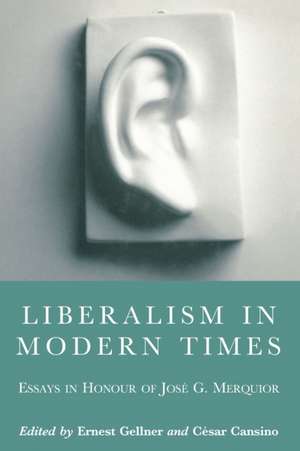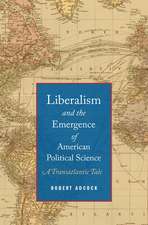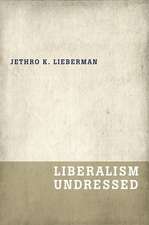Liberalism in Modern Times: Central European University Press Book
Autor E. Geliner, C. Cansino, Csar Cansinoen Limba Engleză Hardback – 9 oct 1996
Preț: 510.27 lei
Nou
Puncte Express: 765
Preț estimativ în valută:
97.67€ • 101.58$ • 81.84£
97.67€ • 101.58$ • 81.84£
Carte tipărită la comandă
Livrare economică 13-27 martie
Preluare comenzi: 021 569.72.76
Specificații
ISBN-13: 9781858660523
ISBN-10: 1858660521
Pagini: 256
Dimensiuni: 150 x 238 x 25 mm
Greutate: 0.5 kg
Editura: Central European University Press
Seria Central European University Press Book
ISBN-10: 1858660521
Pagini: 256
Dimensiuni: 150 x 238 x 25 mm
Greutate: 0.5 kg
Editura: Central European University Press
Seria Central European University Press Book
Textul de pe ultima copertă
The premature death in 1991 of the Brazilian essayist, thinker and diplomat Jose G. Merquior robbed the international intellectual community of a gifted 'friend of reason and a defender of liberty'. Several essays in this volume, directly or indirectly, broadly or personally, pay tribute to the life and work of this 'politically engaged intellectual'. Part I examines Merquiorian thought itself and - aptly enough - begins with Merquior's own incisive review of the rebirth of the liberal idea and recommitment to democracy itself. Part II ranges more widely: here, such distinguished contributors as John Hall, Ernest Gellner and Noberto Bobbio develop some of Merquior's favourite themes - liberalism as it relates to social cohesion, political stability, morality, republicanism and democracy, and the relativism and scepticism that characterize postmodern thinking. The book's application to two regions of the world is direct and obvious: to Merquior's own Latin America and to Central and Eastern Europe, where rapid political change and economic transition have brought debates on liberalism to the forefront. But in Merquior's thought there are also lessons for Western Europe and the United States, where the very familiarity of the liberal tradition can lead to a certain sterility of ideas. These various perspectives in liberal political thought are brilliantly drawn out by Ernest Gellner in the Preface - one of the last pieces he wrote before his death in November 1995.


























